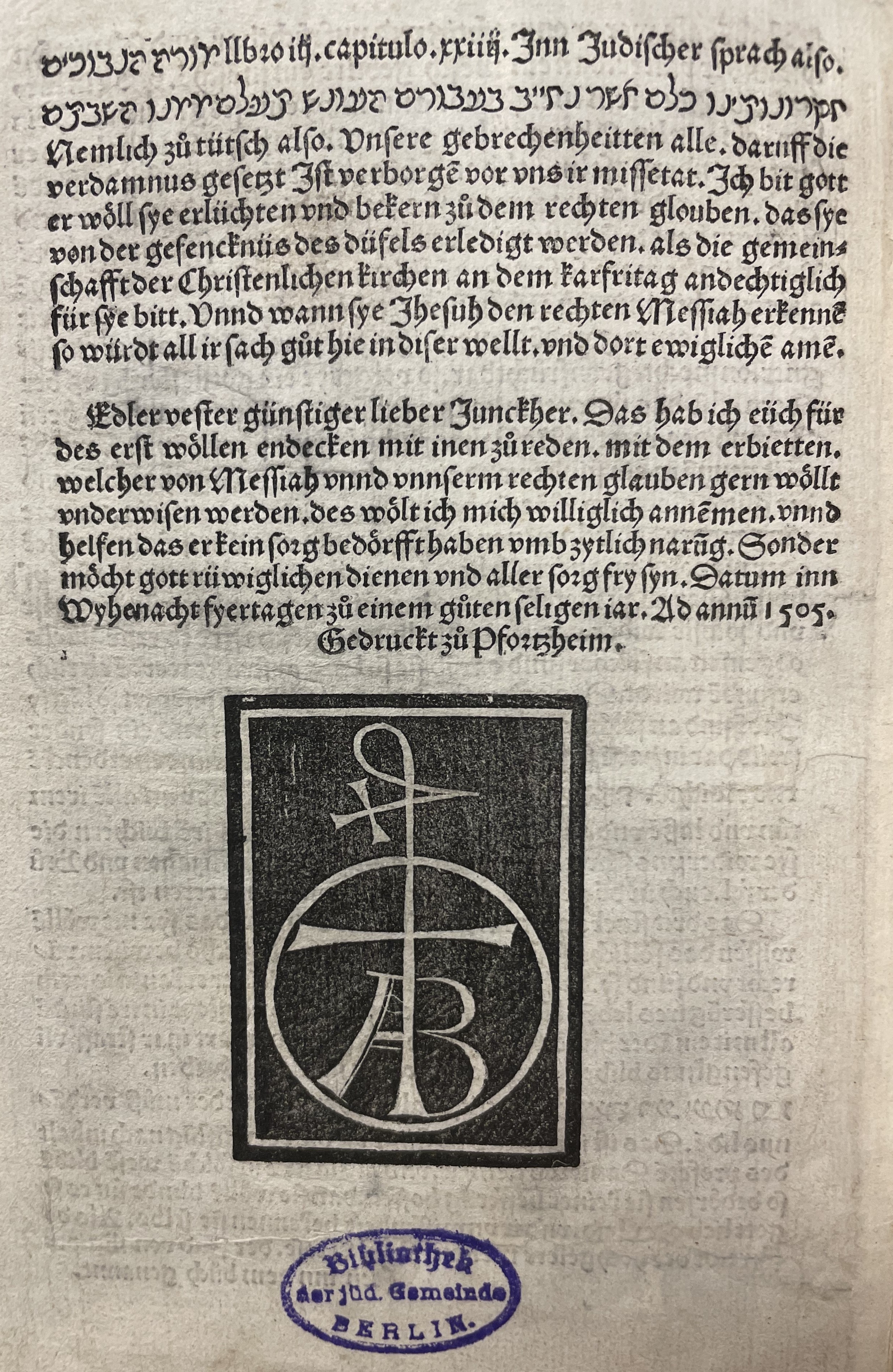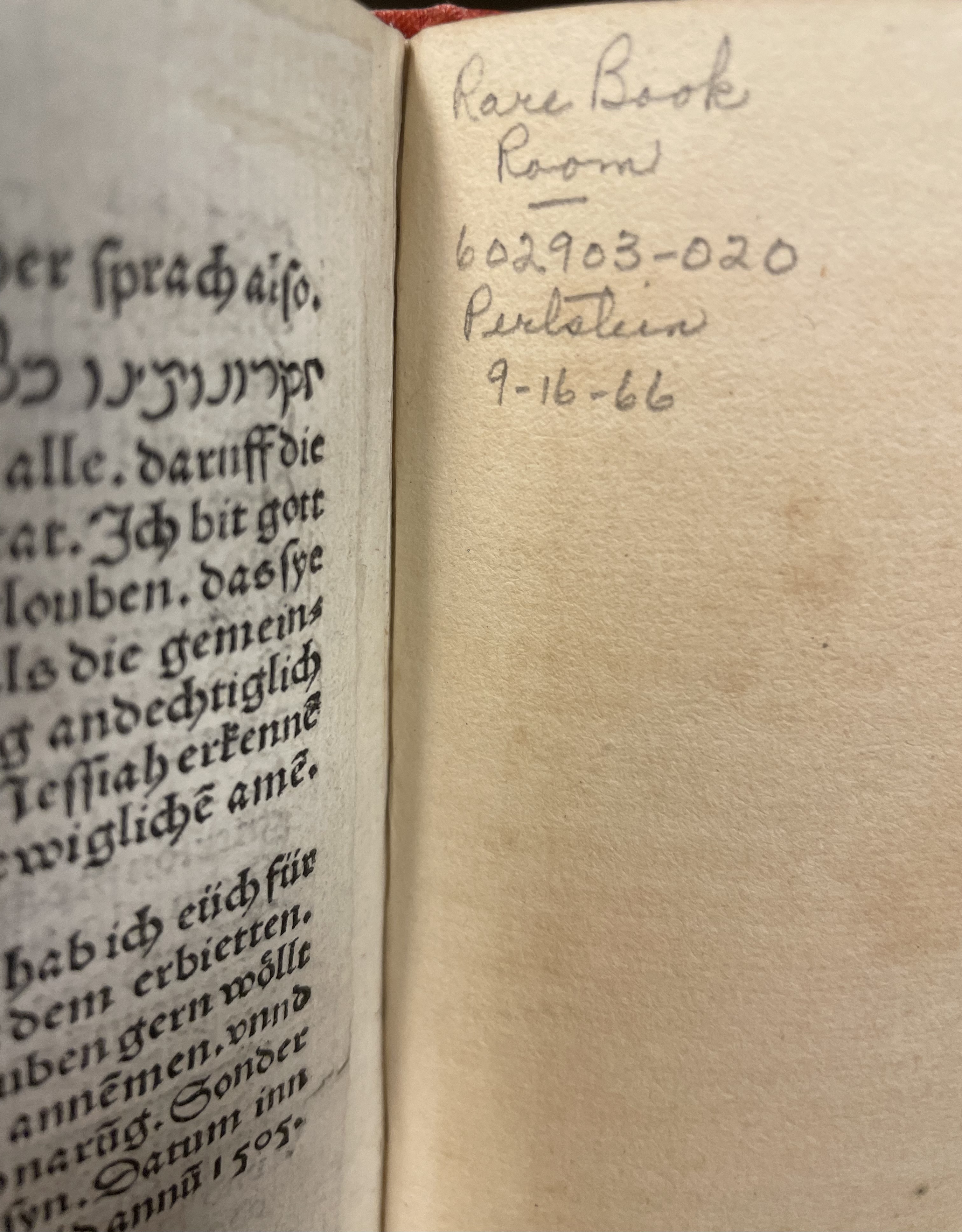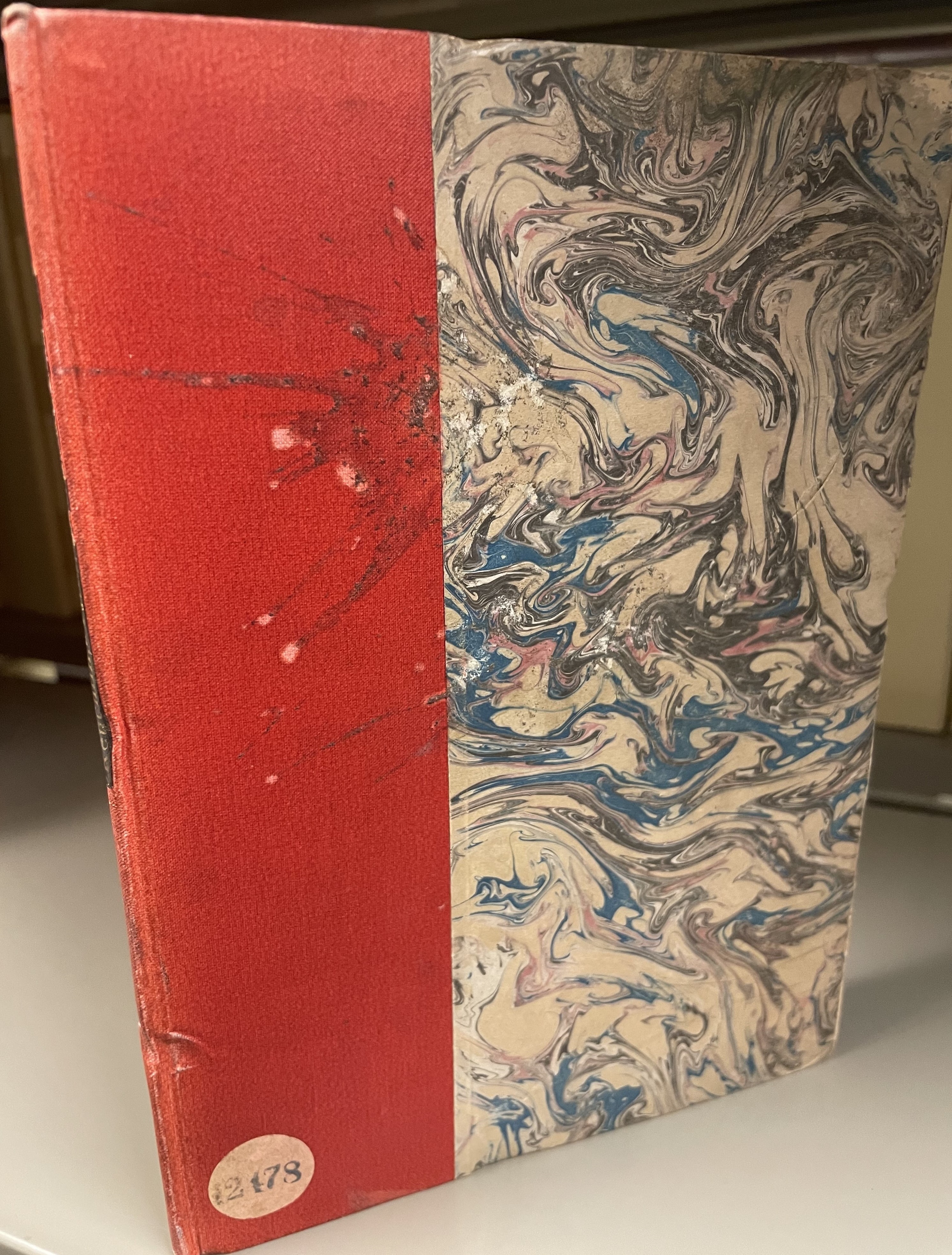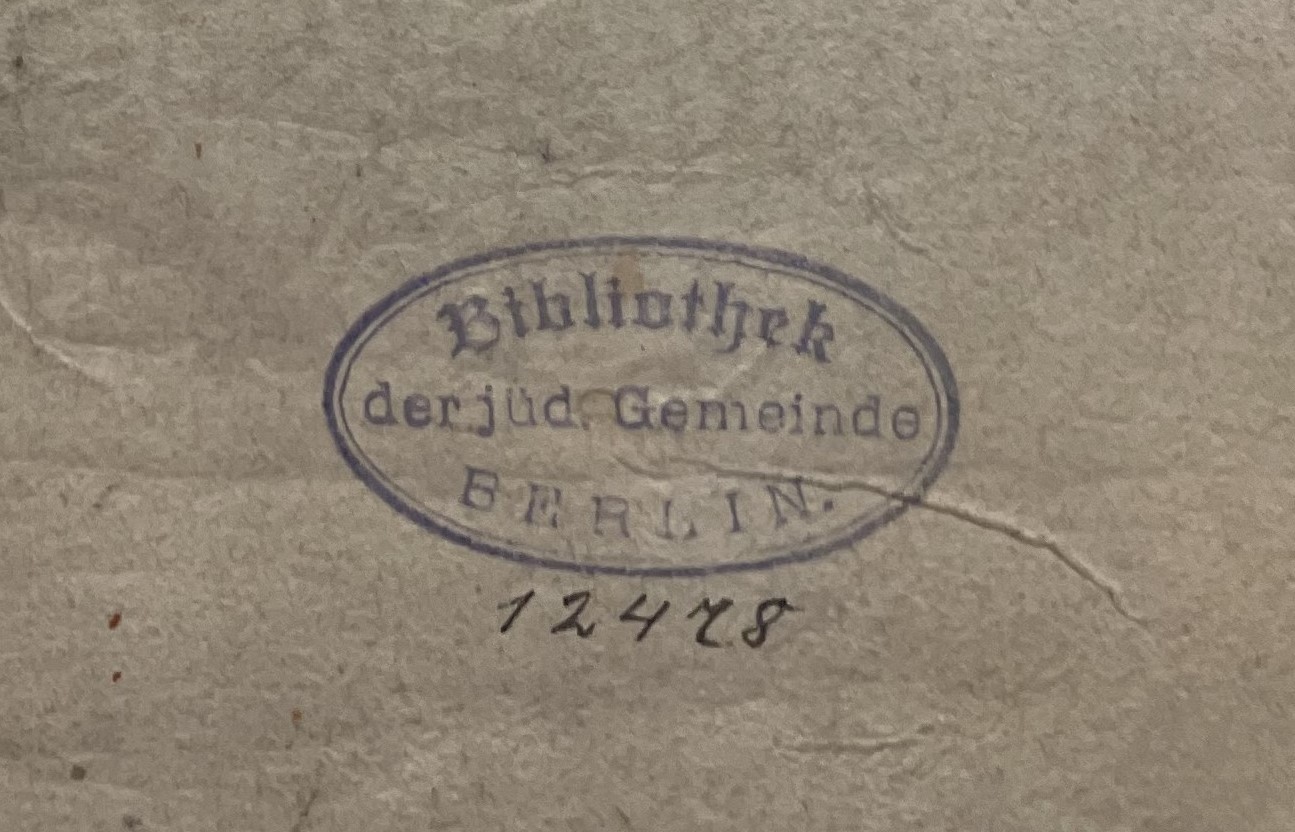Much like people, books possess their own unique trajectories through time and space. The presence of twelve books that once belonged to the library of the Jüdische Gemeinde Berlin (Jewish Community of Berlin) at the Special Collections Research Center of the University of Michigan Library in Ann Arbor tells of an enthralling provenance finding.
The discovery was prompted with the exhibit Reforming the Word: Martin Luther in Context, curated by professor of History and Germanic Languages Helmut Puff and librarian and Special Collections curator Pablo Alvarez in 2017.
The exhibit sparked an exciting provenance discovery when Puff identified on one book’s title page a stamp with the words “Bibliothek der Jüd. Gemeinde Berlin.”
Stamp of the Bibliothek der Jüdische Gemeinde Berlin on the title page of Doctor Iohanns Reuchlins' Missiue
This particular book, “Doctor Iohanns Reuchlins tütsch Missiue. Warumb die Juden so lang im Ellend sind,” was published in 1505 in Pforzheim by Johannes Reuchlin, a pioneering Christian scholar of Hebrew in early modern Europe. Through mutual dialogue rather than the use of force, in this short treatise Reuchlin calls on Jews to explore why God had punished them for their sins and to consider conversion.
Notably, this rare volume was printed by the renowned Thomas Anshelm, a pioneer in the field who experimented with new Hebrew fonts – rarely before seen in print in areas north of the Alps.

Logo of printer Thomas Anshelm on the last page of Reuchlins' Missiue
The library of the Jüdische Gemeinde Berlin was decimated in several steps after 1933. Before its destruction, it had become one of the most important Jewish libraries in Germany. Its collection was confiscated in the winter of 1939-1940 and, like many other European Jewish libraries, transferred to the Nazi Party.
In an article addressing the discovery at the University of California Los Angeles Library of six books looted from the Jewish Religious Community Library in Prague, librarians Diane Mizrachi and Michal Bušek noted that the books confiscated by the Nazis were intended to be used for the purpose of creating institutes where party scholars would interpret these texts. Using Nazi ideological perspectives, the goal was to provide “scientific proof” of their racial superiority and justify their campaigns to demonize Judaism and annihilate the Jewish race (Mizrachi & Bušek 2023).
The arrival of Reuchlin’s treatise to the University of Michigan Library can be tracked down to September 1966 through a pencil inscription on the last page of the book. The inscription also includes the name “Perlstein”.

Pencil inscription on page facing last page of Reuchlins' Missiue
The “Perlstein” in question is most likely Israel Perelstein (1897-1975), a respected Polish-American dealer in rare books, with a career spanning over fifty years. From the 1950s onwards, Perelstein’s primary sources of materials were the antiquarian book markets in Czechoslovakia and Yugoslavia. Many of Perelstein’s librarian and scholarly colleagues were aware of the importance of his role in developing their research collections (see Laurence H. Miller, 1975).
The arrival of Reuchlin’s treatise to the University of Michigan is also recorded on the Report of The University Library 1966-1967 (page 102 of the HathiTrust Digital Library version). The report notes the acquisition of Reuchlin’s work and identifies it as part of a small collection of books purchased by the library marked with the "Jüd. Gemeinde, Berlin" stamp. The only other title referred to in the report is “Veritatis repertorium” (Coimbra, 1567), an anti-Jewish work by the Portuguese monk Francisco Securis.

Front cover of Reuchlins' Missiue
Thanks to the meticulous work of our library’s diligent catalogers, who traced the stamp information in the local catalog records (MARC field 590), it is now known that the group of books formerly held by the Jewish Community of Berlin Library comprises twelve volumes. Spanning publications from 1505 to 1800, these books primarily address religious and medical topics – including a work by Immanuel Kant on mental health. The catalog records of the twelve books (most of them fully digitized) are available here.
While in recent years libraries in France and Germany have taken steps to return materials stolen from Jewish communities during the Nazi era, Diane Mizrachi and Michal Bušek noted a lack of such initiatives in the English-language landscape (Mizrachi & Bušek 2023).
Mizrachi & Bušek's article on the discovery of six books looted from the Jewish Religious Community Library in Prague (JRCLP) at the UCLA Library breaks new ground in this area and might inspire further investigation concerning this group of twelve books housed at the University of Michigan that once belonged to the Bibliothek der Jüdische Gemeinde Berlin.
